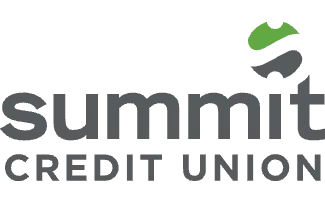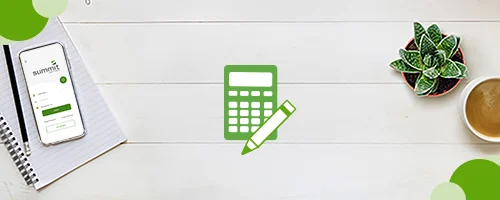Guide To Financial Confidence
Financial Education
How To Protect Yourself From Common Scams
Budgeting
The security of your personal information is important to us - and that's why Summit Credit Union will never ask you for confidential information, like full social security number, full bank account number, debit or credit card numbers, CVV or PIN in an email or via a website, online chat or from an unsolicited phone call. If you receive a suspicious request for confidential information, it's not from Summit.
Here’s Some Things to Be on the Lookout For:
-
Vishing, smishing and phishing. These scams are used to steal your personal information and will ask you to verify or re-submit your information through phone calls (vishing), SMS/text messages (smishing) or email (phishing). Scammers combine caller ID spoofing with pressure and scare-tactics to get you to share your confidential information. In phishing, you’re often urged to click on a link – in an email message, on a website or even in an instant message – or an attachment. That link might include part of a real company’s name and even take you to a site that looks very similar to the real one. -
Fake check scams. Someone gives you a check and asks you for some money back. It could be you’ve been selected as a secret shopper and are told to wire back money. Or, you sold an item online and the buyer overpays, so they ask you to send the difference back. Maybe someone asks you to cash a check for them. They say they'll give you some of the money as a "thank you" for helping them out. You won’t learn the check was a fraud until after your hard-earned cash leaves your account. And since the check is fraud, you could be liable for the value of the check. -
IRS scams. The IRS owes you money? Who wouldn’t want to hear that? The scammer will reach out to you through a phone call or email, claiming to be an IRS agent. All they need to make sure you get your money? The account information at your financial institution. -
Lottery or sweepstakes scams. Like the Secret Shopper Scam, you’ll receive a “winner’s” check plus instructions to wire money back to cover taxes. And we already know what that check’s really worth.
How to Protect Yourself:
-
Know that if it sounds too good to be true, it might be. -
Never provide personal information. No legitimate company will call or email you to confirm your account or personal information. -
Hang up and call yourself. Many times the caller will try to pressure you or scare you into sharing information. Hang up the phone and call your financial institution to verify (or report) the suspicious activity. -
Don’t use a provided link. The company’s legit but not sure the email is? Contact the company directly using a phone number or website you know is real. -
Use good passwords and PINs – and change them regularly. Don’t use names and numbers that are easy to guess (birth date, house number, sequence, etc.) And don’t use one password for everything. -
Protect your credentials. Don’t share your login information and don’t give information out over the phone or email unless you initiated the call or transaction. Don’t keep your PIN in your wallet! -
Keep an eye on your accounts. Don’t wait for a monthly statement, use online banking. -
Sign up for transaction alerts. These are a quick and easy way to know if there’s suspicious activity. -
Sign the back of your credit/debit cards. This is an extra security measure and it only takes a minute.
mobile security FAQs

What To Do If You Can’t Pay A Bill

Helping Our Communities, One Person At A Time.

Tips for Managing Money and Paying Off Student Debt After Graduation

How to Protect Yourself From New Scams

5 Ways To Save Money During The Holidays

How To Protect Yourself From Common Scams

5 Self-care Ideas To Manage Stress This Holiday Season

5 Tips To Your Home Improvement Sweet Spots





Featured Products
Financial Education
About
Help & Support





Stay on SummitCreditUnion.com
Go
Consumer Financial Protection Bureau's website.



